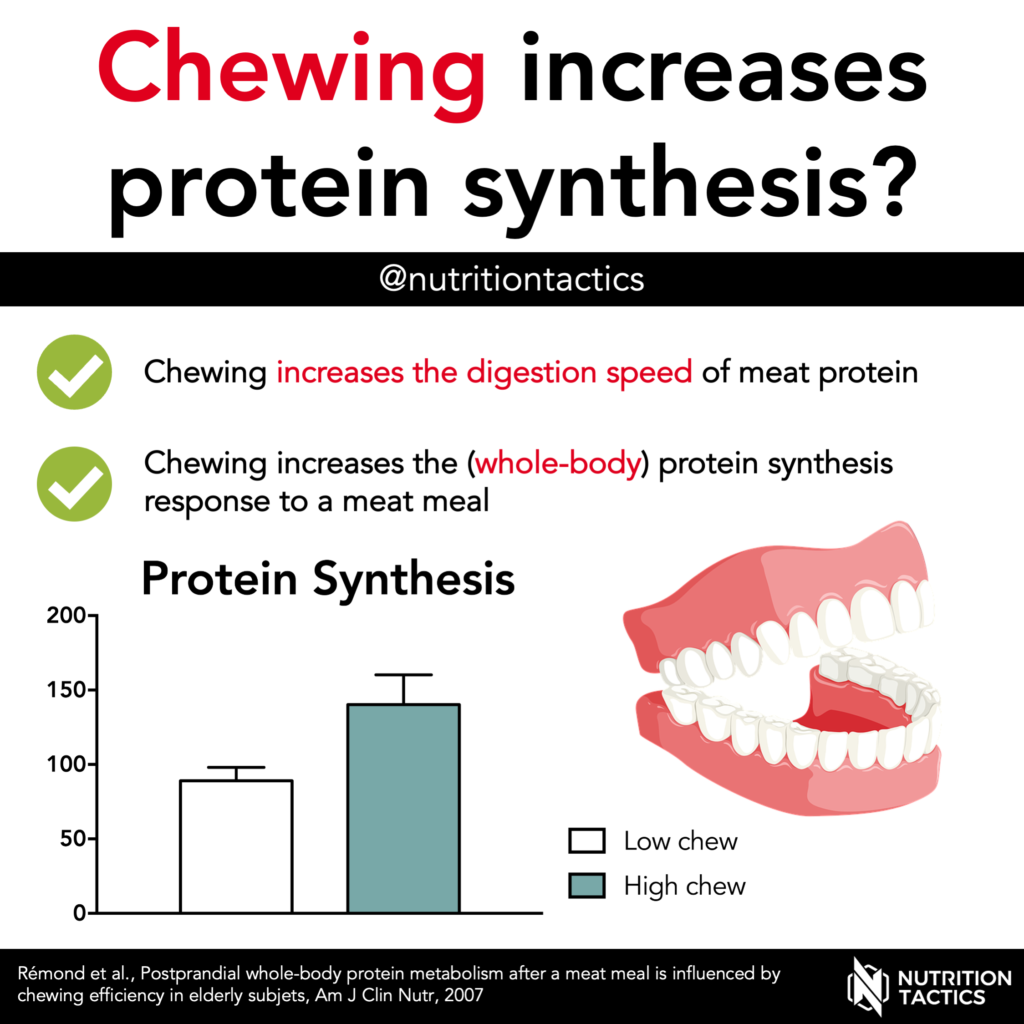Can chewing impact protein synthesis?
Different types of protein can have different digestion speeds. The digestion speed of protein is one of the factors that impact the protein synthetic response to the meal (the growth response). However, protein digestion speed may not only depend on the type and amount of protein that is ingested, but also how you eat it.
Chewing functions as the first step of digestion. However, chewing efficiency is lower in denture wearers compared to people with their natural teeth.
This study investigated whether chewing efficiency affects digestion and absorption of a meat meal and lowers the whole-body protein synthesis response. Two groups of elderly participants were compared; one group with natural dentition and one group that wore complete dentures.
The poorly chewing denture wearers showed a lower protein digestion and absorption rate. Consequently, their whole-body protein synthesis rates were lower in response to the meat meal compared to subjects with natural dentition.
These data suggest that inefficient chewing delays protein digestion, absorption, and lowers the protein synthetic response. However, whether above-average chewing would improve the response remains to be determined.
Note that this study didn’t specifically measure protein synthesis in muscle tissue. However, there are also indications that a faster protein digestion and absorption speed can possibly lead to a greater muscle protein synthetic response
Go to the next infographic in the protein series:
Free amino acids are not superior to intact protein?


Leave a Reply